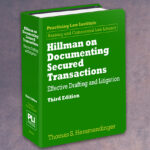
The DOE Has Set Sights On Legacy Admissions, And Civil Rights Protections Could Be Collateral Damage
//
 As soon as the Supreme Court got rid of affirmative action last month, the writing has been on the wall that legacy admissions ought be the next to go. It is a really hard sell to harp on about how affirmative action lets in underqualified applicants and spits in the face of meritocracy while Harvard gives applicants a pass just because their parents happen to be wealthy and white. Legacies have had about a six times higher admission rate than students who have had to rely solely on merit, after all. Following the investigation the Department of Education’s Civil Rights office has launched against Harvard, we are only going to learn more about the process as time goes on:
As soon as the Supreme Court got rid of affirmative action last month, the writing has been on the wall that legacy admissions ought be the next to go. It is a really hard sell to harp on about how affirmative action lets in underqualified applicants and spits in the face of meritocracy while Harvard gives applicants a pass just because their parents happen to be wealthy and white. Legacies have had about a six times higher admission rate than students who have had to rely solely on merit, after all. Following the investigation the Department of Education’s Civil Rights office has launched against Harvard, we are only going to learn more about the process as time goes on:
And so it begins: https://t.co/hM4k60oFUy
If DOE sues, then putting SCOTUS in a corner on legacy/donor admissions is good politics for POTUS. But those benefits may not be worth the risk of conservatives’ killing disparate impact liability and crippling civil rights laws. https://t.co/PK6uWUswBg pic.twitter.com/fLiAI6T4Dx
— Mike Sacks (@MikeSacksEsq) July 25, 2023
googletag.cmd.push( function() { // Display ad. googletag.display( "div-id-for-top-300x250" ); });It is pretty clear that if you look at disparate impact liability and the kids getting grandfathered in through legacy admissions that race is a factor. A National Bureau of Economic Research study showed that about 70% of all legacy applicants are white. As a fun aside, are you familiar with the history of the term “grandfathering”? In a totally unrelated change of pace, let’s learn about that now. This is from NPR:
 Sponsored The Digital Transformation Imperative
Sponsored The Digital Transformation Imperative “Because of the 15th Amendment, you can’t pass laws saying blacks can’t vote, which is what they wanted to do,” says Eric Foner, a Columbia University historian. “But the 15th Amendment allowed restrictions that were nonracial. This was pretty prima facie a way to allow whites to vote, and not blacks.”
…
A half-dozen states passed laws that made men eligible to vote if they had been able to vote before African-Americans were given the franchise (generally, 1867), or if they were the lineal descendants of voters back then.
This was called the grandfather clause. Most such laws were enacted in the early 1890s.
“The grandfather clause is actually not a means of disenfranchising anybody,” says Michael Klarman, a Harvard law professor. “It was a means of enfranchising whites who might have been excluded by things like literacy clauses. It was politically necessary, because otherwise you’d have too much opposition from poor whites who would have been disenfranchised.”
Keep this detour in mind as we go back to legacy admissions. Until the 1970s, Harvard admitted fewer than 12 black students a year. Since Harvard started admitting students back in 1636, that gives white applicants north of 300 years to grandfather their children in through legacies. And it’s a powerful tool — the NBER study found that about 75% of the white students who were athletes, children of faculty and staff, on the dean’s interest list or legacy students, would not have been admitted if they were non-white members of those classes.
googletag.cmd.push( function() { // Display ad. googletag.display( "div-id-for-middle-300x250" ); }); googletag.cmd.push( function() { // Display ad. googletag.display( "div-id-for-storycontent-440x100" ); }); googletag.cmd.push( function() { // Display ad. googletag.display( "div-id-for-in-story-youtube-1x1" ); });Looking at the history of the practice, it would be very difficult for a good faith court to not treat Harvard’s grandfathering practice as a long-running racial affirmative action program after a disparate impact liability analysis. We are not dealing with a good faith court. Mike Sacks is right to be worried about what could come if this case goes before Thomas and company.
I imagine Alito would join Thomas/Gorsuch. Roberts/Kavanaugh/Barrett? Surely none of them likes disparate impact liability. But would they want to do away with it in a case upholding rich kid affirmative action after striking down race-conscious admissions? Not a good look! https://t.co/ixp2pZCA4n
— Mike Sacks (@MikeSacksEsq) July 25, 2023
Sponsored Sponsored The Digital Transformation Imperative
Sponsored The Digital Transformation Imperative  Sponsored Documenting Secured Transactions: A New Guide For Practitioners A newly updated PLI treatise provides both the legal framework and practical guidance on documenting secured transactions, including important details about 2022 amendments to the UCC. From Practising Law Institute
Sponsored Documenting Secured Transactions: A New Guide For Practitioners A newly updated PLI treatise provides both the legal framework and practical guidance on documenting secured transactions, including important details about 2022 amendments to the UCC. From Practising Law Institute  Sponsored Security: The Stakes May Be Higher Than You Think We surveyed Above the Law’s readers on challenges facing smaller law firms. Join us to learn what we found. CLE credit available if you attend… From iManage and Above The Law
Sponsored Security: The Stakes May Be Higher Than You Think We surveyed Above the Law’s readers on challenges facing smaller law firms. Join us to learn what we found. CLE credit available if you attend… From iManage and Above The Law  Sponsored Clio Users: New Ways To Add Value To Your Practice! Want to quickly and easily identify the products that work well with Clio? Read on. From Above The Law
Sponsored Clio Users: New Ways To Add Value To Your Practice! Want to quickly and easily identify the products that work well with Clio? Read on. From Above The Law If the legacy admissions case goes to the Supreme Court and is found to be alright, you best believe that a bunch of grandfathering scholarships and the like funded by wealthy Republican donors that-just-so-happen to exclude minorities are going to pop up.
The Racial History Of The ‘Grandfather Clause’ [NPR]
Earlier: The Affirmative Action Cases Went About As Well As You’d Expect Them To. What Now?
First They Came For Affirmative Action. Then They Came For Legacy Admissions. Good Riddance.
 Chris Williams became a social media manager and assistant editor for Above the Law in June 2021. Prior to joining the staff, he moonlighted as a minor Memelord™ in the Facebook group Law School Memes for Edgy T14s. He endured Missouri long enough to graduate from Washington University in St. Louis School of Law. He is a former boatbuilder who cannot swim, a published author on critical race theory, philosophy, and humor, and has a love for cycling that occasionally annoys his peers. You can reach him by email at [email protected] and by tweet at @WritesForRent.
Chris Williams became a social media manager and assistant editor for Above the Law in June 2021. Prior to joining the staff, he moonlighted as a minor Memelord™ in the Facebook group Law School Memes for Edgy T14s. He endured Missouri long enough to graduate from Washington University in St. Louis School of Law. He is a former boatbuilder who cannot swim, a published author on critical race theory, philosophy, and humor, and has a love for cycling that occasionally annoys his peers. You can reach him by email at [email protected] and by tweet at @WritesForRent.
 Sponsored Clio Users: New Ways To Add Value To Your Practice! Want to quickly and easily identify the products that work well with Clio? Read on. From Above The Law
Sponsored Clio Users: New Ways To Add Value To Your Practice! Want to quickly and easily identify the products that work well with Clio? Read on. From Above The Law  Sponsored This Early Adopter Found Success With Legal AI. Here’s How You Can, Too Hear how one company brought the power of artificial intelligence into its contracting workflow. From LexCheck and Above The Law Topics
Sponsored This Early Adopter Found Success With Legal AI. Here’s How You Can, Too Hear how one company brought the power of artificial intelligence into its contracting workflow. From LexCheck and Above The Law Topics Affirmative Action, Courts, Harvard, Legacy Admissions, Supreme Court
Introducing Jobbguru: Your Gateway to Career Success
The ultimate job platform is designed to connect job seekers with their dream career opportunities. Whether you're a recent graduate, a seasoned professional, or someone seeking a career change, Jobbguru provides you with the tools and resources to navigate the job market with ease.
Take the next step in your career with Jobbguru:
Don't let the perfect job opportunity pass you by. Join Jobbguru today and unlock a world of career possibilities. Start your journey towards professional success and discover your dream job with Jobbguru.
Originally posted on: https://abovethelaw.com/2023/07/the-doe-has-set-sights-on-legacy-admissions-and-civil-rights-protections-could-be-collateral-damage/